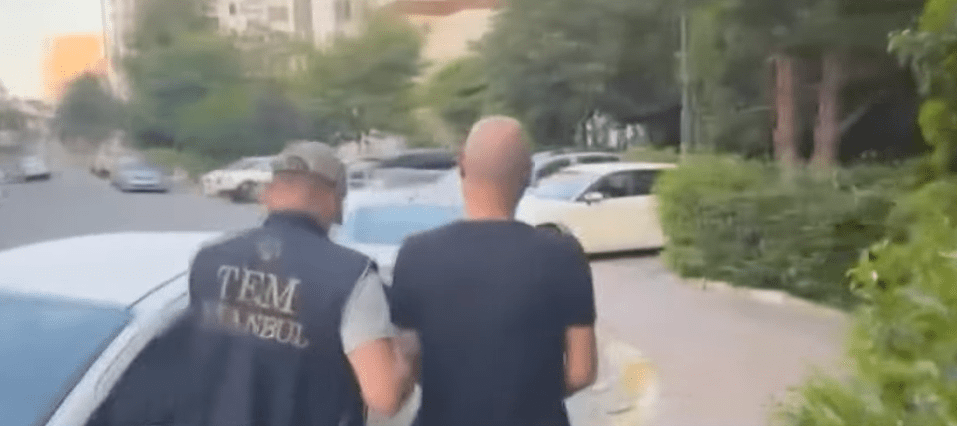The shocking events surrounding Zeki Doruk, a once-famous retail tycoon who made his name through HAKMAR and TATBAK, have rocked the Turkish business scene in recent days. With almost 800 locations, these brands were incredibly successful in controlling their industries and were long commended for their size and retail presence. However, there was a much deeper story developing covertly behind this commercial success.
Doruk transformed his modest beginning into a retail empire by utilizing a steady expansion model and strategic acquisitions. His impact extended from the heart of Istanbul to outlying communities, where HAKMAR shops became a mainstay for necessities. However, while conducting a comprehensive financial operation in nine provinces, including Ankara, Yalova, and Malatya, investigators discovered documents that would drastically change the public’s opinion of this once obscure individual.
Authorities discovered a safe that was securely locked with a purposefully wrong password when they got to Doruk’s house. When it was accessed, the contents were astounding. There were private ledgers, valuables, and—most remarkably—a handwritten will. Zeki Doruk himself wrote and signed that will, which stated that his whole fortune should be given to FETÖ under the fictitious heading of “service movement.”
Zeki Doruk – Personal & Corporate Profile
| Full Name | Zeki Doruk |
|---|---|
| Nationality | Turkish |
| Profession | Businessman, Retail Chain Owner |
| Companies Owned | HAKMAR, TATBAK |
| Branches (approx.) | 800+ |
| Notable Legal Development | Detained for alleged financial ties to FETÖ |
| Allegation | Left entire assets to FETÖ in handwritten will |
| Document Discovery | Will and ‘talisman’ prayer by Fethullah Gülen |
| Investigation Authorities | MIT, Istanbul Chief Prosecutor, Financial Crimes Unit |
| Companies Seized | 19 subsidiaries placed under court-appointed administration |
| Reference | https://en.haberler.com/the-owner-of-hakmar-zeki-doruk-has-left-all-his-18858040 |

This statement was not only divisive, but also politically explosive in a nation still reeling from the 2016 coup attempt. Even further, Doruk’s note stipulated that FETÖ affiliates alone must receive the zakat from all HAKMAR and TATBAK profits. The will’s wording was remarkably explicit, implying both devotion and strong ideological affinities.
A talisman prayer, purportedly handwritten by Fethullah Gülen, the exiled leader at the core of FETÖ’s operations, was concealed next to this document. According to intelligence sources, this was not your typical artifact; only trusted insiders working at the highest levels of the network were granted access to it. The fact that Doruk possesses such a personal item significantly strengthens the argument that his support for FETÖ was intentional and long-standing.
The case raises an uncomfortable but important question for both large company operators and early-stage entrepreneurs: how do extensive commercial structures conceal ideological funding? Doruk’s example is especially illuminating because of the way he skillfully blended private financial routing with public success. No warning signs appeared for years. Customer satisfaction remained high, his branches grew, and he received little media attention. He transferred large amounts of money through unidentified channels while maintaining a noticeably low profile.
Doruk developed a funding model that was mainly hidden by incorporating covert financial channels into lawful operations. However, as soon as federal agencies synchronized data from various jurisdictions, that model fell apart. His arrest is one of the biggest financial seizures linked to ideological funding in recent memory, along with the arrest of 25 other suspects.
Turkish authorities have now placed 19 of Doruk’s affiliated companies under administrative trusteeship through calculated legal actions. This measure is not just symbolic; it is a very effective way to stop asset diversion, safeguard employee livelihoods, and make sure that customer services are not interrupted while the investigation is underway.
This kind of state intervention is especially novel in the context of Turkish corporate law. The court has temporarily transferred control, allowing the brands to continue operating while protecting them from future manipulation, rather than closing down operations. These rulings are intended to uphold public confidence and convey the message that no one is above the law because of commercial influence.
Authorities tracked down a number of foreign financial transactions during the investigation that connected Doruk’s businesses to well-known middlemen overseas. These flows were much faster and more frequent than would be permitted by standard auditing, despite being deftly veiled as business expenses or service contracts. This picture was only made unquestionably clear by combining data from several agencies.
This case has had a significant impact on Turkish society. HAKMAR was seen by many residents as a dependable, surprisingly reasonably priced supermarket chain that was aware of local needs. Customers are disappointed and employees are perplexed by its scandalous collapse. However, authorities’ prompt action has been both necessary and encouraging. The state has greatly decreased the likelihood of public unrest and economic consequences by acting swiftly.
This case could change how regulatory frameworks keep an eye on business operations with ideological ties in the years to come. Even though Doruk’s case is unique in scope, it is unlikely to be a singular occurrence. Stricter zakat reporting requirements for big private companies and third-party audits of corporate charitable contributions are already being suggested by government advisors.
Once hailed for his economic impact, Zeki Doruk is now at the center of one of the most talked-about moral and legal quandaries in Turkey. His will’s handwritten words, “Gülen elevated me, let my wealth be sacrificed,” continue to provoke intense public discussion. It is a betrayal to some. It is a warning to others. It serves as a reminder to everyone that influence can be applied in a variety of striking ways.
Doruk operated for years without being discovered thanks to financial secrecy and strategic alliances. But in the end, the safe he attempted to keep locked, both literally and figuratively, was unlocked. And a tale of faith, money, accountability, and secrecy spilled out.

